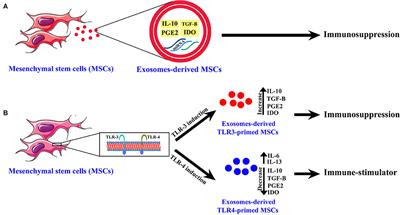REVIEW
Published on 14 Feb 2022
Stem Cell-Derived Exosome as Potential Therapeutics for Microbial Diseases

doi 10.3389/fmicb.2021.786111
- 6,407 views
- 25 citations
19k
Total downloads
55k
Total views and downloads
REVIEW
Published on 14 Feb 2022

REVIEW
Published on 27 Jan 2022

EDITORIAL
Published on 18 Jan 2022
REVIEW
Published on 13 Jan 2022

REVIEW
Published on 04 Jan 2022

REVIEW
Published on 03 Jan 2022

REVIEW
Published on 23 Dec 2021

REVIEW
Published on 30 Nov 2021

MINI REVIEW
Published on 26 Oct 2021

MINI REVIEW
Published on 30 Sep 2021

REVIEW
Published on 27 Jul 2021
